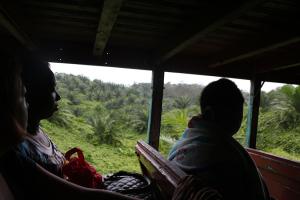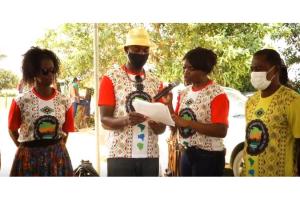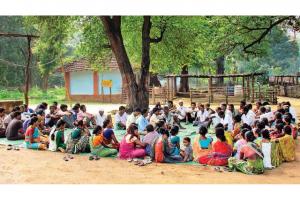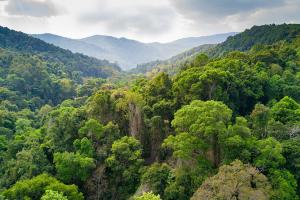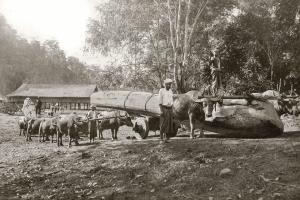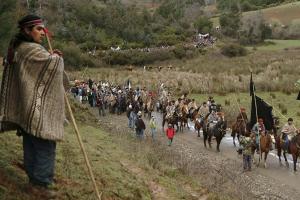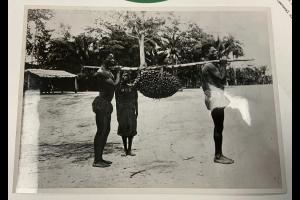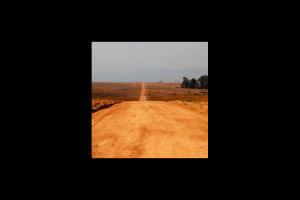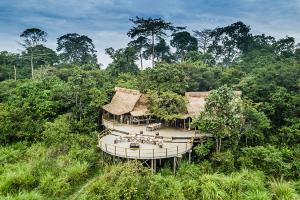Legal Land Theft
In most countries with tropical forests, governments uphold the colonial legacy that declared the State to be the owner of forest lands. This has enabled governments to legally grant land to private investors, often violating communities' customary ownership of the land. As a result, corporate activities that destroy forests continue to expand.
Bulletin articles
16 June 2022
In Brazil, oil palm plantations are expanding rapidly, mainly in the Amazonian state of Pará. BBF (Brasil BioFuels), the largest oil palm company in Brazil, stands accused of environmental crimes and violence against indigenous, quilombola and peasant communities such as Virgílio Serrão Sacramento, a community linked to the Small Farmers’ Movement (MPA).
Bulletin articles
16 June 2022
Communities resisting the impunity and impacts of oil palm growers in Ecuador: Cases from Esmeraldas
There are currently 270,000 hectares of oil palm plantations in Ecuador. The resistance processes of the communities of La Chiquita, Guadualito and Barranquilla de San Javier in the region of Esmeraldas continue to generate outrage and solidarity among other communities, and internationally.
Bulletin articles
16 June 2022
Quilombola Communities’ Resistance Against Suzano Company in the Southernmost part of Bahia, Brazil
A conversation with the president of the Volta Miúda Quilombola Association and of the Southernmost part of Bahia Quilombola Cooperative revealed how Suzano, the world’s largest paper and cellulose corporation, continues to operate with serious violations and illegalities. Communities keep fighting to reclaim their lands back.
Bulletin articles
16 June 2022
The ‘conservation’ model in India continues to enclose forests and evict communities in a deliberate attempt to undermine and scuttle the Forest Rights Act (FRA) - a landmark legislation that strengthens the authority of communities over their forests. Meanwhile, companies are allowed to destroy forests, even inside the conservation areas.
Bulletin articles
23 March 2022
This bulletin focuses on a central cause of large-scale deforestation and dispossession of forest peoples: The imposition of land concessions as an instrument to separate, divide and map land according to economic and political interests. In consequence, the editorial alerts on the grabbing of vast amounts of hectares for Carbon Concessions.
Bulletin articles
23 March 2022
British firms not only controlled 80 per cent of the established ‘logging lands’ in Thailand, but they also influenced the establishment of the Royal Forest Department, which came to have total power over the nation’s forests. Massive land grabs and various colonial laws made half the country’s territory into a colony of the central state.
Bulletin articles
23 March 2022
What a certain historiography terms civilizational expansion or capital’s expansion has in fact been the invasion and de-territorialization of peoples and communities using much epistemic and territorial violence. Concessions have been granted in areas that are not demographic voids, a colonial concept that ignores the fact that they have been populated for millennia.
Bulletin articles
23 March 2022
Many oil palm plantations’ concessions in West and Central Africa were built on lands stolen from communities during colonial occupations. This is the case in the DRC, where food company Unilever began its palm oil empire. Today, these plantations are still sites of on-going poverty and violence. It is time to end the colonial model of concessions and return the land to its original owners.
Bulletin articles
23 March 2022
Women from the Ribeira River Valley -in the state of São Paulo, Brazil- have devoted themselves to opposing the concession of one of the region’s most important tourist parks. Their struggle is fundamental, and part of diverse resistances against the privatizing trend of creating ‘territories without people’. They remind us that their territory has been and is rooted in their stories, voices and resistance.
Bulletin articles
23 March 2022
Colonial and anti-colonial movements’ have deeply shaped the patterns and impacts of concessions in SE Asia. In some cases, communities have experienced dispossession through land grabs dressed as concessions. In others, concessions are part of a re-concentration of land holding. Either way, the concession model fits well with ideologies of modernisation.
Bulletin articles
23 March 2022
The conservation industry is now promoting the idea of ‘buying up’ Conservation Concessions and reconstituting them as business models with profit-seeking aims. A case in point is the ‘African Parks Network’, which manages 19 National Parks and Protected Areas in 11 countries in Africa.
Other information
22 March 2022
The book, Une écologie décoloniale' (a decolonial ecology), written by Malcom Ferdinand, presents an analysis of how we cannot understand the current environmental crisis without knowing colonial history.

